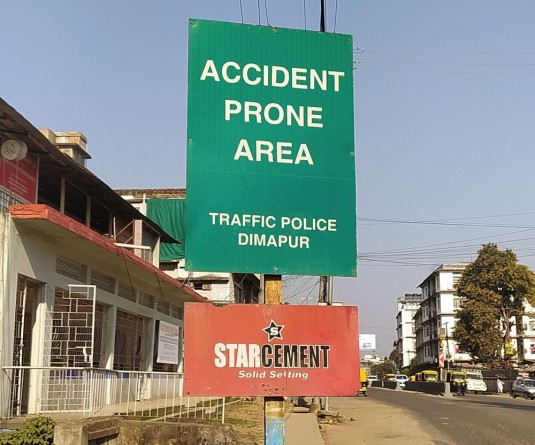
M Sashi Jamir
Dimapur
With the dawn of a fresh year Forum for Naga Reconciliation (FNR) is making a right clarion call to the Nagas. Nagas, both young and old, must once again re-look at our political ambience hence our aspiration. FNR is absolutely correct to say that Nagas should re-imagine our peace process in the light of the on-going political negotiations between India and Naga political groups. Some anxieties that surface while one ponders upon the current Indo-Naga political talks are: First, how could an issue that touches all the lives of the Naga people of Naga-Land be discussed in such non-transparent manner? One understands given the complex tenor of the Indo-Naga issue the longevity of the time taken to nail its final solution. However, it is senseless to continue the Indo-Naga talks in complete isolation from the common people. Nagas have the right to know their destiny! Ideally speaking Naga leaders who are involved in the negotiation should present the outcome of each round of talk to the common people and further prepare themselves for the next round in consultation with the people. No doubt there are some sensitive issue concerning the border of the adjoining states but a leader should be able to device plans to overcome any sensitivity to engage the common Naga people. Or is the tattered Naga civil society the reason behind the inability of the Naga leaders to reach out to the common people?
Second, if the Naga political process has been non-transparent then the common people appear to be consumed with their pursuit of existential needs and happiness. Of course, no one can complaint about their pursuance but the polarity between the indulgence in self and the concern for the common Naga aspiration is glaring. Perhaps, the common people are tired with the protracted search for Naga aspiration and so might have become apathetic. But the fact of the matter is that in our apathy we might sell our birth right causing bitter ramification for our younger generation. It is hard to imagine an issue of a people group tackled without the participation of the common people!
Third, one wonders what kind of settlement will arise for the Nagas when the Government of India is having simultaneous talks with three different Naga entities. It is hard to comprehend that the aim of Delhi is to unite the three different Naga entities and provide a single solution to the Naga cause. Rather, one can imagine that Delhi will be having a good dilemma of prolonging the settlement for the already arduous Naga political peace process. Let us hope that we Nagas are not making ourselves a laughing stock for the onlookers!
FNR is again right to say that reconciliation is vital to Naga solution. Reconciliation is not an event but a process. Reconciliation is required among the Nagas at multiple levels: among the Naga political leaders, among the Naga civil societies as well as among the Naga common people. FNR has been working hard, at times without getting its due appreciation from the Nagas, but it should continue to strive harder for the Naga reconciliation. A goal for FNR should be to become a people’s forum and movement. It would not be easy given the apathetic outlook of the common people and the division in the civil society. Yet, without challenges there is no meaning in one’s endeavor.



